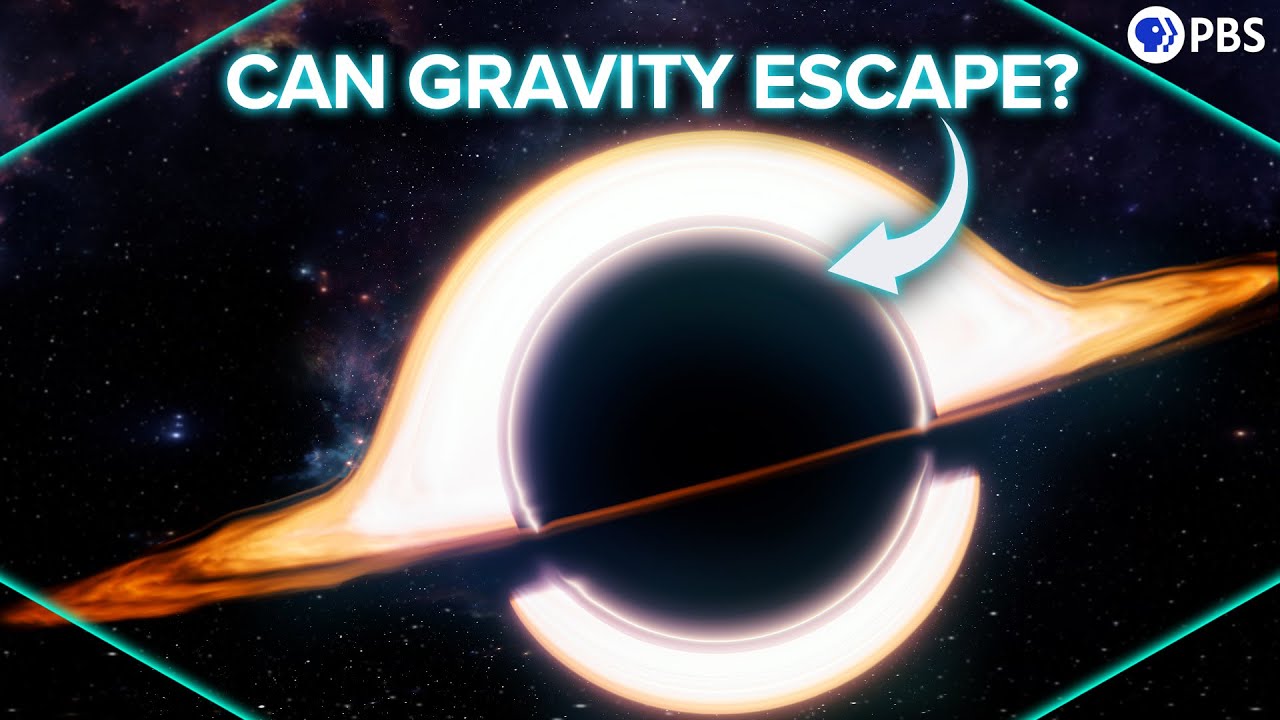tl:dw: Gravity propagates at the speed of light, but the mass causing the gravity is trapped under an event horizon that not even light can escape, so how do gravity escape the event horizon.
There's a few explanations that all end up at the same result:
- Gravity warps the fabric of spacetime, but each bit of spacetime is only influenced by it's neighboring bits. So spacetime is still able to get dragged towards the singularity in the same way that a water molecule gets dragged towards a waterfall.
- If gravity is a quantum field, then the force of gravity would be mediated by virtual particles of the gravitational force carrying particle (known as the graviton). Virtual particles (on account of them being more mathematical artifacts than real things that exist) can travel at any speed, including at infinite speed, so the virtual gravitons wouldn't be stopped by the event horizon.
- From the frame of reference of an outside observer, anything approaching a black hole takes an infinite amount of time to cross the event horizon, therefore all mass that has ever fallen into a black hole (including the mass of the star that turned into the black hole) is still outside the event horizon for anyone also outside the event horizon. This means that the gravitational influence of all that mass is still causally connected with any outside observers, and thus they would still feel the gravity of said mass.
ohhhh yeah space time...probably some of the densest, most sciency youtube you can inject straight into your brain
The problem is that both Einstein's theory and experimental evidence from gravitational waves show that gravity propagates at the speed of light (which really should be called the speed of causality), so it really could get sucked up in a sense.
If someone were to magically create a massive object on the inside of a black hole's event horizon, then even as this newly spawned object's gravitational well propagated out at the speed of light in all directions, it's gravitational influence would never be able to exit the black hole's event horizon due to the fact that spacetime is falling towards the singularity faster than light below the event horizon. In other words, the gravity of a black hole can't come from inside the event horizon (or at least it can't according to pure GR).
My biggest fear is dying in the climate wars before someone figures out how quantum mechanics and general relativity fit together. I NEED TO KNOW.
Black holes are fuckin weird man
I wish there was a way to somehow survive passing the event horizon, as you would see the entire universe live out it’s lifespan behind you
just entagle two cameras and throw one in, then watch the livestream of the rest of the universe, and boom you know the future
Entanglement doesn’t allow you to transmit information faster than light, so this wouldn’t work.
No I know lol, that was the point of my joke I guess It was just bad lol
As Pratchett remarked, when a king dies his heir immediately becomes king. Like, instantaneously as soon as the king is dead. "The king is dead, long live the king". It's faster than light.
So one way you could do it is packing your probe you launch inside the black hole with thousands and thousands of live kings, each one bit of information. Then the probe selectively guillotine them mechanically, and you watch the thousands and thousands of heirs outside of the black hole, checking if they're now kings, to decode your message.
It's foolproof. And if it doesn't work then you've still got a ton of the monarchy either dead or marooned in space so really it's a win-win.
Yes. Entanglement is not a non local interaction, but is instead a non local correlation that was created by a local interaction.
In order to entangle two particles, they have to be brought close enough together to interact with one another, but they will stay entangled with one another over seemingly infinite distance so long as the wave function doesn’t collapse. This is why entanglement is so weird, since once you measure the state of one particle, you automatically know the state of the other particle regardless of how far away it is.
On its own, this can’t be used to transmit info (and certainly not faster than light), since measuring one particle causes the wave function to collapse, thereby breaking the entanglement. However, there are quantum computing systems that use entanglement to generate encryption keys, “teleport” quantum states, etc. It’s just that the entanglement itself can't be directly used for transmit information, and any useful info still has to be transmitted at light speed or slower through conventional communication channels.
So in general relativity, this isn't a question you have to ask. In that framing of physics, the spacetime is just very curved, and that curve is smooth up until the singularity at the middle.
I personally wouldn't put too much stock in the graviton. You need supersymmetry for that, and I'm convinced that's a dead end.
I was always kinda under the assumption that gravitons may exist as some higher dimensional thing that doesn't necessary adhere to 3D physics, but just kinda passes through our plane when there's large amounts of mass. I dunno, higher dimensional physics is cool






